Edible Oils
Mustard Oil:
Uses, Benefits, and Nutritional Value of Mustard oil:
- Uses:
- Culinary: Mustard oil, also known as “Sarson ka tel,” is commonly used in Indian cooking. It provides a pungent flavor, unique texture, and a reddish-brown color to dishes.
- Traditional Remedies: Mustard oil has been used in traditional medicine for various purposes, including skin and hair care.
- Health Benefits:
- Heart-Healthy Fats: Mustard oil contains a balanced combination of polyunsaturated and monounsaturated fats. Consuming this oil can help improve heart health.
- Omega-3 and Omega-6 Fatty Acids: Mustard oil is a good source of these essential fatty acids, which have several health benefits:
- Reducing Inflammation: Omega-3s help reduce blood clotting, inflammation, and may lower blood pressure.
- Heart Health: Monounsaturated fats in mustard oil can lower LDL (bad) cholesterol and reduce the risk of cardiovascular events.
- Anti-Inflammatory Properties: Monounsaturated fats promote an anti-inflammatory state, reducing the risk of diseases like heart disease and diabetes.
- Nutritional Value(per 1 tablespoon):
- Calories: 124
- Fat: 14g (mainly monounsaturated)
- Sodium: 0mg
- Carbohydrates: 0g
- Protein: 0g
- Skin and Hair Benefits:
- Antioxidants: Mustard oil is rich in antioxidants and can be applied topically for skin conditions like acne, eczema, psoriasis, and sunburns.
- Traditional Dishes: Mustard oil is an ingredient in many Indian dishes, such as dal makhniand lachha paratha.
Pickles: It’s also used for making pickles.
Groundnut oil
Groundnut oil, also known as peanut oil or arachis oil, is a versatile vegetable-derived oil made from the edible seeds of the peanut plant. Let’s explore its nutritional value, properties, and potential health benefits:
- Nutritional Value(per 1 tablespoon):
- Calories: 119
- Fat: 14 grams
- Saturated fat: 2.3 grams
- Monounsaturated fat: 6.2 grams
- Polyunsaturated fat: 4.3 grams
- Vitamin E: 11% of the Recommended Daily Intake (RDI)
- Phytosterols: 27.9 mg
- Properties of Groundnut Oil:
- Antioxidant: Groundnut oil may act as an antioxidant.
- Anti-Inflammatory: It might have anti-inflammatory activity.
- Anticancer: Some studies suggest a reduced risk of certain cancers, including breast and colon cancer.
- Antidiabetic: Groundnut oil may have benefits for managing diabetes.
- Heart Protection: It might protect the heart.
- Antimicrobial: Groundnut oil could have antimicrobial properties.
- Uses:
- Cooking: Groundnut oil is commonly used for frying due to its high smoke point (437°F/225°C).
- Flavorant: Unrefined peanut oil adds flavor to dishes similar to sesame oil.
- Biodiesel: Historically, it was even used as a source of fuel for diesel engines.
Sesame oil:
Sesame oil, derived from raw or toasted sesame seeds, is a versatile oil used in Chinese, Japanese, and Middle Eastern cuisines.
Uses, Benefits, and Nutritional Value of Sesame oil:
- Nutritional Value(per 1 tablespoon):
- Calories: 120
- Fat: 14 grams (mainly monounsaturated and polyunsaturated fats)
- Omega-3 and Omega-6 Fatty Acids: These essential fatty acids support heart health and immune function.
- Vitamin E: Provides antioxidant benefits.
- Health Benefits:
- Heart Health: Sesame oil’s balanced ratio of omega-3, omega-6, and omega-9 fatty acids may lower the risk of heart disease. It can help reduce LDL cholesterol and triglycerides.
- Anti-Inflammatory Properties: Sesame oil combats inflammation.
- Skin Protection: It may protect the skin from sun damage.
- Toasted Sesame Oil:
- Amber in color and nutty in flavor.
- Not ideal for cooking due to its low smoke point.
- Add it as a final step in recipes to enhance flavor.
Coconut oil:
uses, benefits, and nutritional value of Coconut oil:
- Nutritional Value(per 1 teaspoon):
- Calories: 40
- Fat: 4.5g (mainly saturated fat)
- Sodium: 0mg
- Carbohydrates: 0g
- Protein: 0g
- Coconut oil is a plant-based fat derived from coconut meat. It’s solid at room temperature due to its high saturated fat content. Despite its popularity, recent research suggests that, like any other saturated fat, coconut oil should be consumed in moderation.
- Health Benefits:
- Hair Health: Coconut oil reduces protein loss in hair and may help with dandruff.
- Skin Benefits: Lauric acid in coconut oil has antimicrobial properties and may benefit the skin.
- Quick Energy: The medium-chain triglycerides (MCTs) in coconut oil provide rapid energy.
- Oral Health: Oil pulling with coconut oil can reduce bacteria and inflammation in the mouth.
- Brain Function: MCTs can be an alternative energy source for the brain.
- Uses:
- Cooking: Coconut oil is excellent for high-heat cooking due to its high smoke point.
- Skin Care: It moisturizes and may improve skin conditions.
- Hair Care: Apply it to your scalp for healthy hair.
- Oral Hygiene: Try oil pulling for oral health benefits.
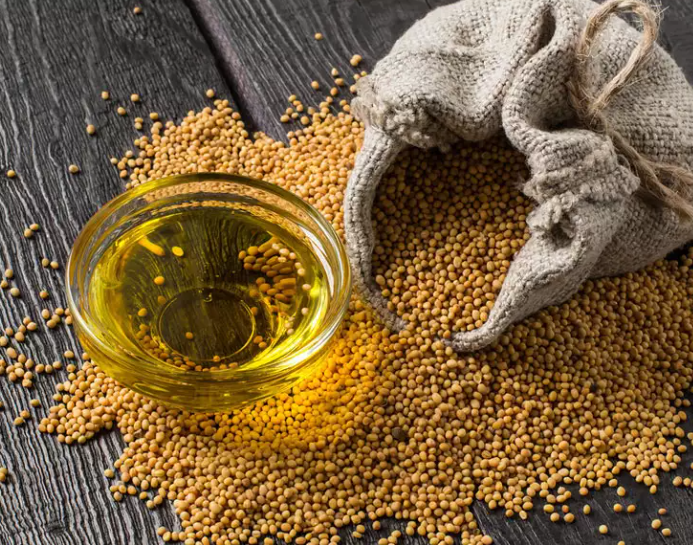
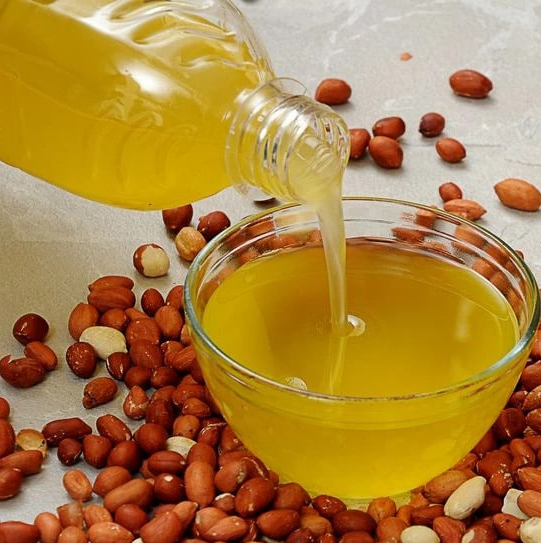
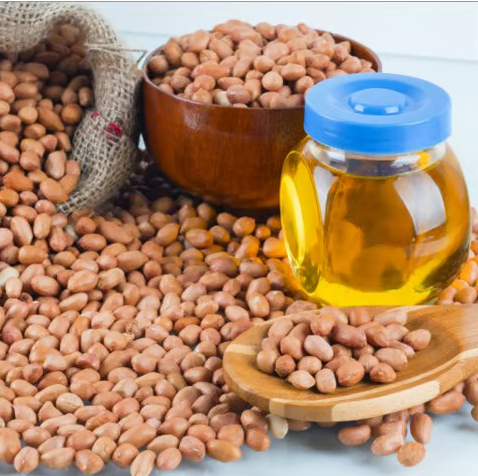
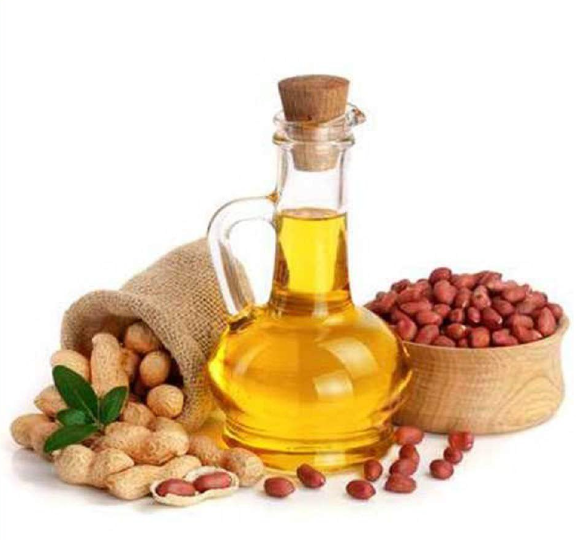
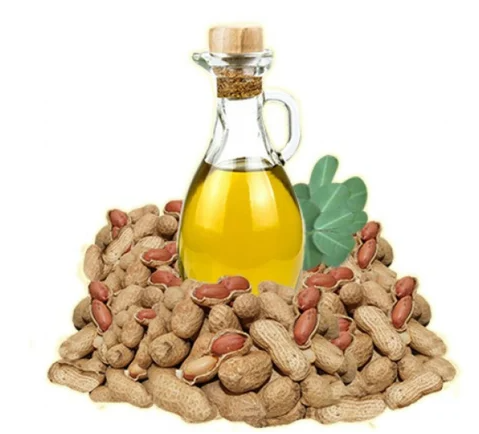
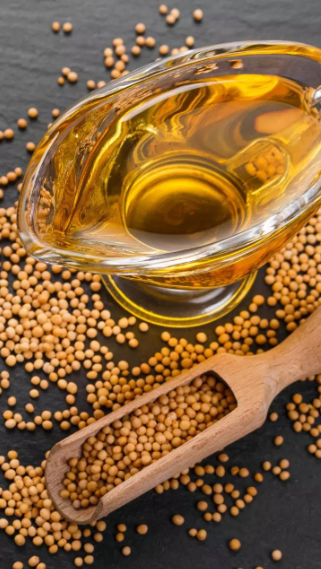
Sunflower oil:
uses, benefits, and nutritional value of Sunflower oil:
- Nutritional Value(per 1 tablespoon):
- Calories: 120
- Fat: 14 grams (mainly monounsaturated and polyunsaturated fats)
- Vitamin E: A fat-soluble nutrient that protects cells from age-related damage.
- Health Benefits:
- Heart Health: Sunflower oil is low in saturated fat and high in monounsaturated and polyunsaturated fatty acids. These can reduce cholesterol and triglycerides, promoting heart health.
- Linoleic Acid: Sunflower oil contains linoleic acid (omega-6), which may lower the risk of coronary heart disease.
- Brain and Nerve Health: Sunflower oil is an excellent source of vitamin E, which supports brain function.
- Types of Sunflower Oil:
- High Oleic: Stable for cooking due to its high oleic acid content.
- High Linoleic: Contains more linoleic acid (polyunsaturated) and is suitable for dressings.
- Mid-Oleic (NuSun): Balanced between oleic and linoleic acids.
Rice Bran oil:
Rice bran oil, extracted from the outer layer of rice grains, offers a range of nutritional benefits and has gained attention for its potential health advantages. Let’s delve into its properties:
- Contains Beneficial Nutrients:
- One tablespoon (14 ml) of rice bran oil provides 120 caloriesand 14 grams of fat. It contains higher proportions of heart-healthy unsaturated fats compared to saturated fat.
- Rice bran oil is rich in vitamin E, which plays a role in immune function and blood vessel health. Other compounds like tocotrienols, oryzanol, and plant sterolscontribute to its health benefits.
- May Support Healthy Blood Sugar Levels:
- Rice bran oil improves insulin resistance, a risk factor for type 2 diabetes. It may help lower blood sugar levels by neutralizing free radicals and increasing insulin levels.
- Promotes Heart Health:
- Recognized by the Japanese government as a health food, rice bran oil significantly lowers LDL (bad) cholesterolwhile boosting HDL (good) cholesterol. Human studies confirm its cholesterol-lowering effects.
- Nourishing for Skin and Hair:
- Rice bran oil has antioxidantproperties and is suitable for skincare formulations.
- Its mild flavor and high smoke point make it ideal for cooking.
Soybean oil:
Certainly! Let’s explore the uses, benefits, and nutritional value of Soybean oil:
- Nutritional Value(per tablespoon):
- Calories: 120 kcal
- Fat: 13.6 g (mainly polyunsaturated and monounsaturated fats)
- Omega-3: 0.9 g
- Omega-6: 6.9 g
- Vitamin E: 1.11 mg (7% of DV)
- Vitamin K: 25.0 mcg (21% of DV)
- Health Benefits:
- Heart-Healthy Fats: Soybean oil is rich in polyunsaturated fats, which may lower cholesterol levels and reduce the risk of heart disease.
- Bone Health: The vitamin K content supports bone metabolism.
- High Smoke Point: Soybean oil withstands high temperatures, making it suitable for various cooking methods.
- Uses:
- Cooking: Ideal for frying, baking, roasting, and sautéing due to its high smoke point.
- Skin Health: May promote healthy skin.
- Cholesterol Management: Contains omega-3 fatty acids that benefit heart health.
Olive oil:
Olive oil is a versatile and heart-healthy oil that has been used for centuries. Let’s explore its benefits, nutritional value, and uses:
- Rich in Healthy Monounsaturated Fats:
- Olive oil contains a predominant fatty acid called oleic acid, making up 73%of its total content.
- Oleic acid has been linked to reducing inflammationand may have beneficial effects on genes associated with cancer.
- Antioxidant-Rich:
- Extra virgin olive oil is loaded with antioxidantsthat fight free radicals and reduce the risk of chronic diseases.
- These antioxidants also protect blood cholesterol from oxidation, lowering the risk of heart disease.
- Anti-Inflammatory Properties:
- Chronic inflammation is a driver of various diseases. Olive oil, especially extra-virgin, reduces inflammationdue to compounds like oleocanthal.
- Oleocanthal works similarly to ibuprofen, an anti-inflammatory drug.
- Heart Health:
- Including olive oil in your diet is associated with a lower risk of cardiovascular disease.
- Replacing just one teaspoon of butter or margarine with olive oil can reduce cardiovascular risk.
- Vitamins and Minerals(per tablespoon):
- Vitamin E: 1.9 mg (13% of DV)
- Vitamin K: 8.1 mcg
- Trace amounts of potassium
Remember to choose high-quality extra virgin olive oil and incorporate it into your cooking and salads for maximum health benefits.
Corn oil:
Corn oil, a refined vegetable oil, is widely used in cooking, especially deep frying. Let’s explore its nutrition, uses, and production, along with potential benefits and downsides:
- Nutrition:
- Corn oil is 100% fat, containing no protein or carbs.
- One tablespoon (15 ml) provides:
- Calories: 122
- Fat: 14 grams
- Vitamin E: 13% of the Reference Daily Intake (RDI)
- It contains about 30–60% linoleic acid, a type of polyunsaturated omega-6 fat.
- The omega-6 to omega-3 ratioin corn oil is 46:1, which can contribute to inflammation imbalance
- Uses:
- Cooking: Corn oil has a very high smoke point (about 450°F/232°C), making it ideal for deep-frying without burning.
- Industrial Applications: Used as an industrial cleaner, lubricant, and fuel for engines.
- Cosmetics: Included in cosmetic products, liquid soaps, and shampoos.
- Production:
- Corn kernels are mechanically pressed to separate the oil.
- The oil undergoes chemical processes to remove impurities and undesirable flavors
Remember to use corn oil in moderation and consider its omega-6 content. It’s widely available and versatile for various culinary applications!
Canola oil:
Canola oil, derived from the canola plant, is a versatile and mild-flavored cooking oil. Let’s explore its nutritional value, benefits, and uses:
- Nutritional Value(per tablespoon):
- Calories: 124
- Fat: 14 grams
- Saturated fat: 1 gram
- Monounsaturated fat: 9 grams
- Polyunsaturated fat: 4 grams
- Vitamin E: 16% of the Daily Value (DV)
- Vitamin K: 8% of the DV
- Health Benefits:
- Heart Health: Canola oil is low in saturated fats and high in monounsaturated fats, which benefit heart health.
- Omega-3 Fatty Acids: Contains alpha-linolenic acid (ALA), an essential omega-3 fat.
- Antioxidant Properties: Rich in vitamin E, supporting skin and eye health.
- Uses:
- Ideal for cooking, baking, and food processing.
- Provides a good ratio of omega-6 to omega-3 fatty acids.
Remember to use canola oil in moderation as part of a balanced diet.
Canola oil:
Canola oil, derived from the canola plant, is a versatile and mild-flavored cooking oil. Let’s explore its nutritional value, benefits, and uses:
- Nutritional Value(per tablespoon):
- Calories: 124
- Fat: 14 grams
- Saturated fat: 1 gram
- Monounsaturated fat: 9 grams
- Polyunsaturated fat: 4 grams
- Vitamin E: 16% of the Daily Value (DV)
- Vitamin K: 8% of the DV
- Health Benefits:
- Heart Health: Canola oil is low in saturated fats and high in monounsaturated fats, which benefit heart health.
- Omega-3 Fatty Acids: Contains alpha-linolenic acid (ALA), an essential omega-3 fat.
- Antioxidant Properties: Rich in vitamin E, supporting skin and eye health.
- Uses:
- Ideal for cooking, baking, and food processing.
- Provides a good ratio of omega-6 to omega-3 fatty acids.
Remember to use canola oil in moderation as part of a balanced diet.
Flaxseed oil,
Certainly! Flaxseed oil, made from ground and pressed flaxseeds, is rich in essential nutrients and has several potential health benefits. Let’s explore its properties:
- Nutritional Value(per tablespoon):
- Calories: 120 kcal
- Fat: 14 grams
- Saturated fat: 1 gram
- Monounsaturated fat: 2 grams
- Polyunsaturated fat: 11 grams
- Omega-3 Fatty Acids: Contains alpha-linolenic acid (ALA), a type of omega-3 fat.
- Vitamin E: Provides antioxidant benefits.
- Health Benefits:
- Heart Health: ALA in flaxseed oil may reduce the risk of heart disease by improving cholesterol levels and reducing inflammation.
- Brain Function: ALA supports brain health and cognitive function.
- Skin and Hair: Flaxseed oil may benefit skin conditions and promote healthy hair.
- Uses:
- Dietary Supplement: Take it as a supplement for its omega-3 content.
- Salad Dressings: Drizzle over salads or use in dressings.
- Smoothies: Add a tablespoon to your favorite smoothie.
Remember to store flaxseed oil in the refrigerator to prevent oxidation. Enjoy its health benefits!
Walnut oil:
Walnut oil, extracted from pressed whole walnuts, offers a range of health benefits. Let’s explore its nutritional value, uses, and potential advantages:
- Nutritional Value(per tablespoon):
- Calories: 120 kcal
- Fat: 14 grams
- Saturated fat: 1 gram
- Monounsaturated fat: 2 grams
- Polyunsaturated fat: 11 grams
- Omega-3 Fatty Acids: Contains alpha-linolenic acid (ALA), which has anti-inflammatory properties.
- Antioxidants: Rich in ellagitannins and other polyphenols.
- Health Benefits:
- Skin Health: Walnut oil supports skin growth, fights inflammatory skin disorders, and promotes wound healing.
- Inflammation Reduction: Walnut oil may fight chronic inflammation.
- Blood Pressure: It may help lower high blood pressure.
- Uses:
- Drizzle it over veggies, rices, and pastas as a “finishing oil.”
- Pair it with cheese, herbs, and mushrooms for a nutty flavor.
Remember to use walnut oil in moderation for its health benefits!
Avocado Oil:
The benefits, uses, and nutritional value of avocado oil:
Nutritional Value (per tablespoon):
Calories: 124
Fat: 14 grams
Saturated fat: 2 grams
Monounsaturated fat: 10 grams
Polyunsaturated fat: 2 grams
Sodium: 1 milligram
Carbohydrates: 0 grams
Fiber: 0 grams
Protein: 0 grams
Health Benefits:
Heart Health: Avocado oil is rich in oleic acid, which may lower LDL (bad) cholesterol and reduce the risk of heart disease.
Blood Pressure: Some studies suggest it can help lower blood pressure.
Skin Health: Avocado oil is used for skin care due to its antioxidant properties.
Uses:
Cooking: Avocado oil has a high smoke point, making it suitable for sautéing, frying, and baking.
Salad Dressings: Drizzle it over salads for a nutty flavor.
Hair and Skin: Apply it topically for nourishment.
Remember to use avocado oil in moderation as part of a balanced diet.
Hazelnut oil:
Hazelnut oil, also known as hazelnut seed oil, is a fragrant gourmet oil made from roasted and pressed hazelnut kernels. It can be used to add an intense, nutty flavor to dressings, baking, and cooking. Additionally, hazelnut oil has some health-promoting properties you won’t want to miss out on! Let’s explore its benefits and uses:
- Safe for Sensitive Skin:
- Hazelnut oil is generally safe for people with sensitive skin. Unlike alcohol-based astringents, it doesn’t usually irritate.
- Hydrating and Moisturizing:
- High vitamin E and fatty acid content make hazelnut oil effective for hydration and moisturization.
- It helps create a natural oil barrier that retains water and prevents dryness.
- Astringent Properties:
- Hazelnut oil contains tannins, powerful antioxidants that act as a natural astringent.
- It can help dry oily skin, cleanse and shrink pores, and remove bacteria.
- Collagen Boost:
- Vitamin E in hazelnut oil supports collagen production by reducing an enzyme that destroys collagen.
- Collagen is essential for skin structure and elasticity.
- Scar Reduction and Fine Lines:
- Applying vitamin E-rich products like hazelnut oil may reduce the appearance of scars and fine lines.
- It’s beneficial for skin repair and rejuvenation.
- Fine for Cooking and Dressings:
- Drizzle hazelnut oil over salads or use it in dressings for a nutty flavor.
- It’s also suitable for baking and stir-frying.
Remember to incorporate hazelnut oil into your skincare routine and enjoy its delightful aroma and skin-nourishing properties
Almond oil:
Almond oil, extracted from the seed of the almond fruit, has several potential health benefits and is commonly used in skincare and haircare. Let’s explore its properties:
- Nutritional Value(per tablespoon):
- Calories: 119
- Total Fat: 13.5 grams
- Saturated Fat: 1.1 grams
- Monounsaturated Fat: 9.4 grams
- Polyunsaturated Fat: 2.3 grams
- Vitamin E: 26% of the Recommended Daily Intake (RDI)
- Phytosterols: 35.9 mg
- Health Benefits:
- Heart Health: Almond oil’s monounsaturated fats may reduce the risk of heart disease.
- Skin and Hair: Almond oil is used for skin and hair health due to its antioxidant properties and vitamin E content.
- Omega-3 Fatty Acids: Almond oil contains alpha-linolenic acid (ALA), which supports overall health.
- Uses:
- Culinary: Drizzle it over salads or use it in dressings for a nutty flavor.
- Skincare: Apply it topically for hydration and nourishment.
Remember to incorporate almond oil into your routine and enjoy its health and beauty benefits!
Mamra Almond oil:
Certainly! Mamra Almond oil, also known as Mamra Badam oil, is a specialty almond oil with unique properties. Let’s explore its benefits, uses, and nutritional value:
- Nutritional Value(per tablespoon):
- Calories: 609 kcal
- Carbohydrates: 3.4 grams
- Protein: 18 grams
- Fat: 58 grams (mainly monounsaturated and polyunsaturated fats)
- Dietary Fiber: 13 grams
- Sugar: 2.3 grams
- Sodium: 1.5 milligrams
- Health Benefits:
- Heart Health: Mamra Almond oil contains monounsaturated fats that can help lower bad cholesterol levels.
- Brain Function: Rich in omega-3 fatty acids, it supports brain health.
- Energy Boost: A handful provides a good amount of energy.
- Uses:
- Culinary: Drizzle it over salads or use it in dressings for a nutty flavor.
- Health: Include it in your diet for overall well-being.
Remember to enjoy Mamra Almond oil in moderation as part of a healthy lifestyle!
